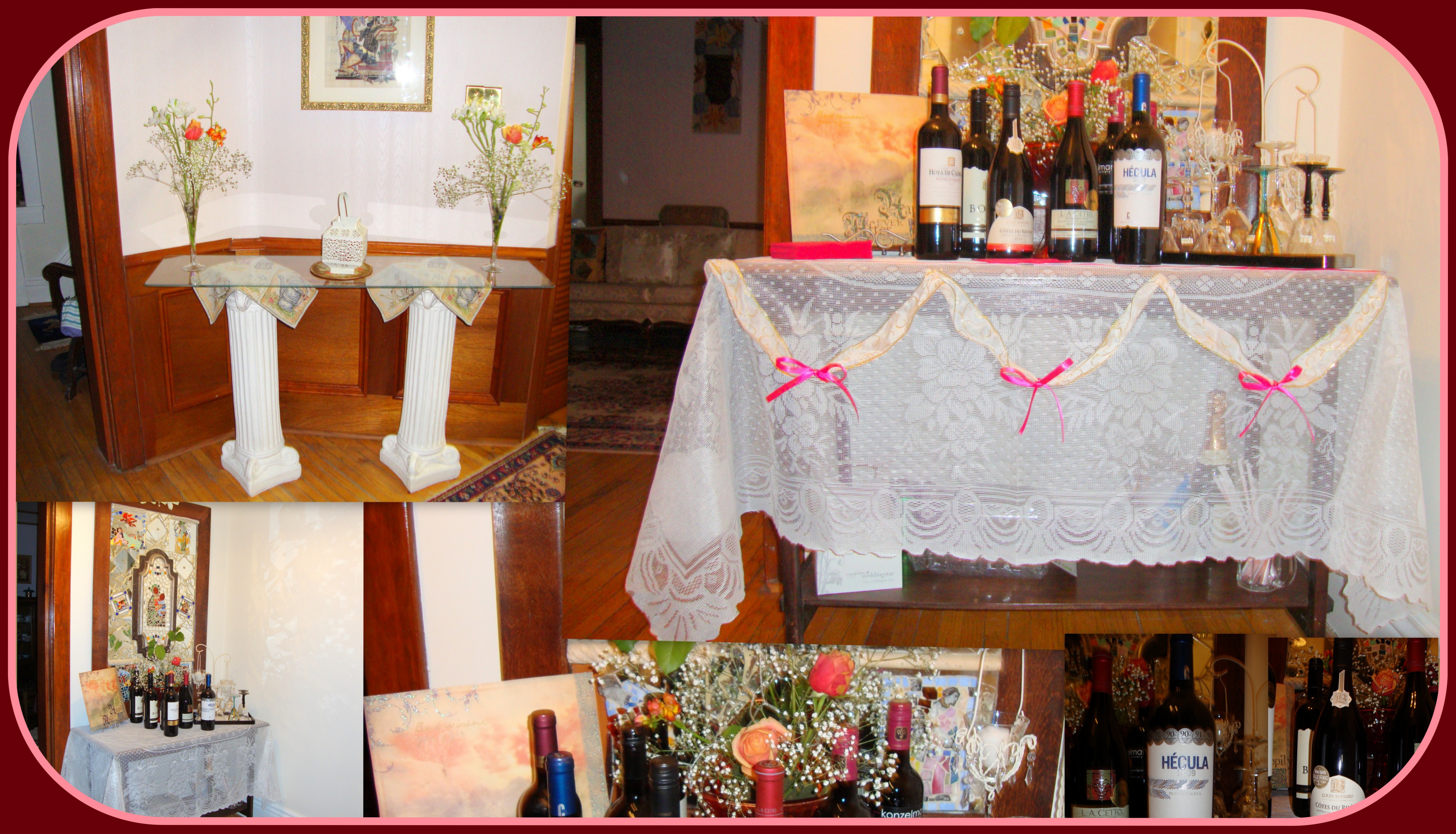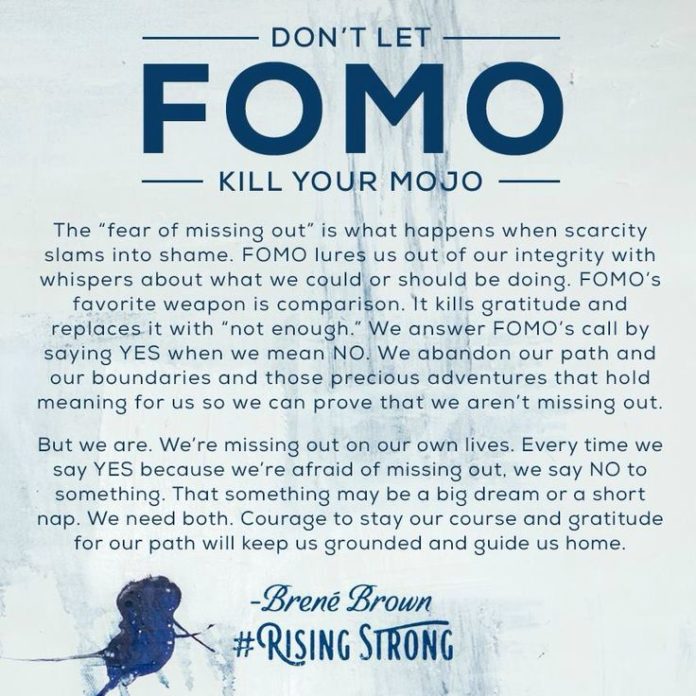In my youthful days, I didn’t want to miss out on fun things that were happening if I didn’t have to. In those days though, everything was more word of mouth. It seems that today the younger folk learn what’s going on through social media. If you’re not “connected,” there something wrong with you. I am on Facebook so I too am aware of happenings with friends through this medium. It’s nice to see what one’s friends are up to. “Engage, Enlighten, Encourage and especially…just be yourself! Social media is a community effort, everyone is an asset. (Susan Cooper) Having said that, there’s an up side and a down side to social media.

There’s a whole way of communicating now that people are texting each other a lot. I’m not aware of all the new short-cuts linguistically that people are using. One such meme is FOMO. That, I’ve just recently learned, means FEAR OF MISSING OUT.
I have to admit that these days it’s alright for me to miss out on things. But, for the young, missing out creates a huge problem. I decided to check out FOMO and its meaning and this is what I found: Anxiety that an exciting or interesting event may currently be happening elsewhere, often aroused by posts seen on social media. ‘I realized I was a lifelong sufferer of FOMO’ (English Oxford Living Dictionaries)
To be suffering from FOMO – what a thing! Is this what social media can do to people? Since the first definition was from a reputable dictionary, I decided to see what another source had to say. I checked FOMO on slang.org and this is their definition: Fear of missing out means, worried about missing a fun time or missing being with everybody. The example given using FOMO is as follows: Danny went to the party, the study session, and the track meet cuz of his fomo.

It is said that one thing leads to another and FOMO brought to memory something my father used to say to my older brothers: “you can’t burn the candle at both ends.” This was when they wanted to participate in too many events not to his liking and wisdom. He wanted them to pay more attention to their school work. They didn’t want to miss out.
I knew when he told them this, he was very serious. He often recited a poem to them too. I was much younger and this made an impression on me. The poem went like this:
My candle burns at both ends;
It will not last the night;
But ah, my foes, and oh, my friends–
It gives a lovely light.

I just checked the authorship of this and it was Edna St. Vincent Millay who wrote it. It refers to putting too much on one’s plate. Metaphorically speaking, it means that you’re dealing with too much. It could be too many projects, too many parties, or even too much work. It’s easy to get burnt-out this way.
Perhaps, FOMO and burning the candle at both ends are similar states. Both have to do with wanting to participate in everything – not wanting to miss out. Edna St. Vincent Millay says, “it will not last the night.” Burn-out will occur. Involvement in all the activities can be “fun” though – “it gives a lovely light.”
Aren’t all these acronyms, slang words, memes, idioms, sayings, etc. fun? The main differences I see with FOMO and burning the candle at both ends lies in the fact that FOMO individuals do the checking of the events via social media (Facebook, Twitter, Linked-In, etc.). This is modern-day behaviour. In the olden days without social media, parents were more involved in the comings and goings of their children and they knew and told their children when they were “burning the candle at both ends.” This fear of missing out has always existed irregardless of how it’s been described across the spectrum of generations.
There has always been peer pressure but social media seems to make it worse. While peer pressure was just experienced mainly by adolescents, it seems that in these days of social media, it occurs at every age. Parties, entertaining, travel, sports events, and other pursuits are only part of a life. It is a waste of time to be jealous of what we see others doing. We may very well be doing other things that would seem quite glamorous to them. Those Facebook pictures sure do look good though!
In reality, people all experience ups and downs, highs and lows. We see all the wonderful events and happenings of others and may feel that our lives are not “as good” compared to theirs. We may feel that we’re missing out. However, the tendency is to put only our best faces and stories on Facebook, etc. “On social media people tend to show off, and post their most attractive picture, and moments that are most likely to give everyone else FOMO (Fear of Missing out). They rarely share the moments when they feel down, or when things have gone wrong and they need support.” (Helen Fielding)

People are still people and some may be suffering from FOMO and others “burning the candle at both ends.” The medium has changed but not the message. There is only so much we are able to do. We can’t attend everything. People are not looking out for us as much as we may think they are. They may not be missing us either. If we’re involved in too many things and not focused, some areas of our lives are going to be affected. There is a price to pay with both FOMO and burning the candle at both ends.

It’s been very interesting to find out about FOMO and its use linguistically and culturally. if you don’t know about FOMO, hope this enlightens you. Of course, if you’re from an older generation, you already know what it means to “burn the candle at both ends.”
I hope that social media impacts your life in a positive way and that you don’t become a FOMO sufferer.
Here is a wonderful quote by Brene Brown on FOMO that is a good way to end this post.

